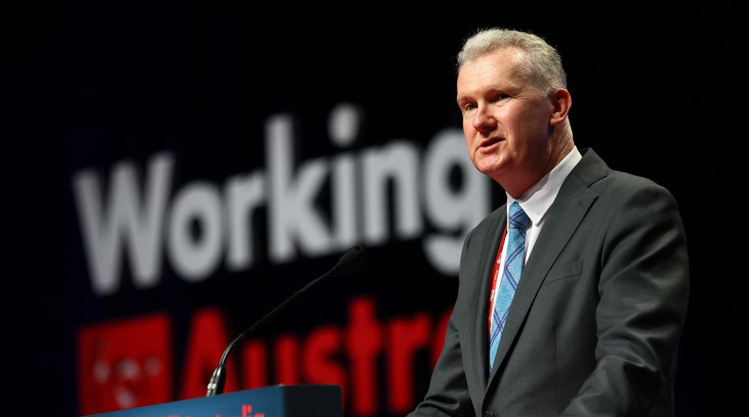Home Care Payroll changes are debated as a critical component in the following IR reforms bill.
This Bill will reclassify many GIG workers, including Home Care contractors, to employees rather than contractors.
This will require the Award Interpretation of these workers’ pay to go beyond payment for jobs taken to their pay conditions alignment to the appropriate award instruments. Together with the BOOT test on pay, this change will require the accurate Award Interpretation of each employee’s timesheet to produce their pay.
How Can We Help Transiting To this New Way of Engaging and Paying Home Care Workers
Inzenius may be able to help in the easy transition to these requirements by tracking each care worker’s time worked in each shift to the employee roster with task allocation to a particular customer for the activity undertaken in the shift, as well as full automation of their payroll. #ThatsInzenius #Payroll
Extracted From the Press Club Presentation by Tony Burke
People who work in the gig economy would be able to apply for unfair termination rights and minimum workplace standards – including pay and insurance – under “world-leading” industrial relations changes to be overseen by the Fair Work Commission from July next year.
Workplace Relations Minister Tony Burke will use an address to the National Press Club on Thursday to detail proposed laws setting minimum standards for independent contractors who are “employee-like” and perform work through a digital labour platform, including food delivery, rideshare and the care economy.
Under the proposed laws, which are part of Labor’s second wave of industrial relations changes to be introduced into federal parliament as early as next Monday, eligible parties will be able to apply to the FWC for minimum standards orders that could include payment terms, record-keeping and insurance.
However, the commission would not set minimum standards for overtime rates, rostering arrangements and terms that would change how a worker was engaged.
The government says this will ensure minimum standards will benefit workers without requiring them to give up the flexibility they value.
Employee-like workers will also be protected from unfair deactivation by digital labour platforms, and would have the right to ask the commission to resolve disputes.
The government insists the changes will not affect the high degree of control and autonomy that independent contractors have over their work but are designed to protect workers who don’t meet the definition of “employee” but who are not genuine small businesses.
Mr Burke said it was unacceptable at least 13 gig workers had died on Australian roads in recent years.
“We know there is a direct link between low rate of pay and safety: it leads to a situation where workers take risks so they can get more work because they’re struggling to make ends meet,” he said.
“We can’t continue to have a situation where the 21st century technology of the gig platforms comes with 19th century conditions.”
The minister said workers classed as an employee had rights such as sick leave, annual leave and minimum rates of pay.
“(But) if not (employed), all those rights fall off a cliff. What we want to do is turn the cliff into a ramp. We’re not trying to turn people into employees when they don’t want to be employees. A whole lot of gig workers like the flexibility from using this technology and that won’t change under our laws,” he said.
“But just because someone is working in the gig economy shouldn’t mean that they end up being paid less than they would if they’d been an employee. Australia is a country where you shouldn’t have to rely on tips just to get by.”
According to a report by the McKell Institute and the Transport Workers Union, more than half of food delivery riders reported feeling pressured and rushed in order to make enough money and avoid deactivation from an app. The research shows 81 per cent of gig workers rely on the platforms as their main source of income.
After their unsuccessful campaign to thwart the passage of the government’s first tranche of workplace law changes, business groups are increasingly vocal in their opposition to the second round, which includes a “same job, same pay” policy cracking down on worker exploitation by labour hire firms.
The Business Council of Australia has claimed the government’s proposed minimum standards for gig work would lead to higher costs for consumers, less reliable services and more inflexibility for workers.
But the government says the proposed second wave of changes have been subject to more than 100 meetings with digital labour platforms, employer groups and unions since August last year.
Uber says more than 150,000 Australians use its platform to earn extra income each month, and $3.8bn was paid out to drivers and delivery people in 2022.
Uber has told the government it supports a “universal safety net” that includes a minimum earnings rate that ensures gig workers never earn below a set amount while on a job, and platform-funded compulsory personal accident insurance with minimum coverage for all gig contractors.
Uber also says it supports the right of gig contractors to appeal decisions to permanently remove their platform access “in certain instances, once internal processes have been exhausted”.
The ACTU says the laws are needed as there is currently no system in Australia to provide transport gig workers with rights like a minimum wage, sick leave, workers’ compensation or protection from unfair contract terminations, adding pressure to rush their work dangerously just to make a living
The TWU says 45 per cent of transport workers in the gig economy report being paid less than the minimum wage, while Industry Super Australia says workers miss out on up to $400m a year in super because they are not employees.
Australian Industry Group chief executive Innes Willox has said it is important the gig economy IR changes do not extend beyond “sensible light-touch minimum standards”.



